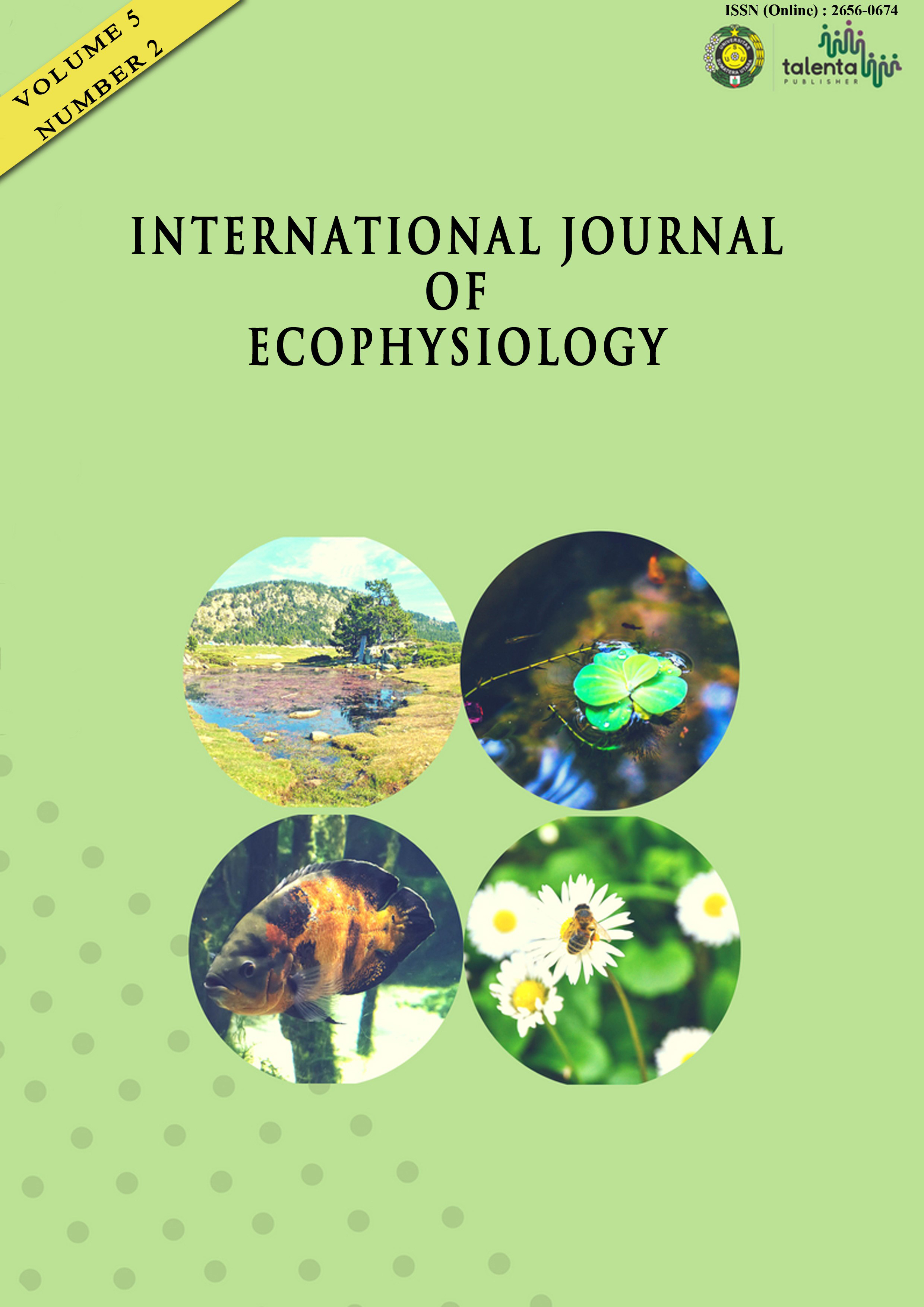Antibacterial Activity Test Of Kawista Fruit Peel Extract (Limonia Acidissima L.) From Pasinan Village, Pasuruan, Against Salmonella Sp Colonies In Vitro
DOI:
https://doi.org/10.32734/ijoep.v5i2.11930Keywords:
Kawista Fruit Peel Extract (Limonia Acidissima L.), Salmonella Sp., Antibacterial, Paper Disc Diffusion MethodAbstract
One of the potential agricultural products from Pasinan Village, Lekok sub-district, Pasuruan, East Java Province is Kawista Fruit. Residents of Pasinan used kawista fruit for consumption, both raw and ripe. The large consumption of this kawista fruit leaves an abundance of fruit peels. Based on the results of phytochemical analysis, the extract of kawista fruit peel contains saponins, tannins, alkaloids, flavonoids, and terpenoids. Another income source of Pasinan residents comes from marine resources, that can be served in fresh fish, dried fish and other processed fish is susceptible to contaminated by microorganisms such as Salmonella sp. Salmonella sp. is pathogenic microbe lives on intestines of animals and humans. This study aims to determine the antibacterial activity of kawista rind extract on the growth of Salmonella sp. in-vitro and to determine the concentration of Kawista rind extract which is effective for inhibiting the growth of Salmonella sp using the paper disc diffusion method. The results of this study, the diameter of the inhibitory zone for the growth of Salmonella sp. using variables concentrations of kawista rind extract at 12.5%;25%;50%;75%;100%, with negative control of aquadest and methanol and positive control is tetracycline. At a concentration of 100% Kawista extract, the diameter of the bacterial inhibition test was the largest and significantly different from another treatment group at concentrations of 12.5%;25%;50%;75%. However, the 100% Kawista extract showed a smaller inhibitory zone than the tetracycline treatment group, but not significantly different. In methanol treatment, the inhibition test showed that the diameter of the bacteria was greater than Kawista extract treatment group of 12.5%;25%;50%;75% but not significantly different. Based on the results of the study, it can be concluded that kawista rind extract is effective for inhibiting the growth of Salmonella sp. bacteria, Kawista rind extract at a concentration of 100% is most effective for inhibiting the growth of Salmonella sp bacteria and shows results that are not significantly different from tetracycline














